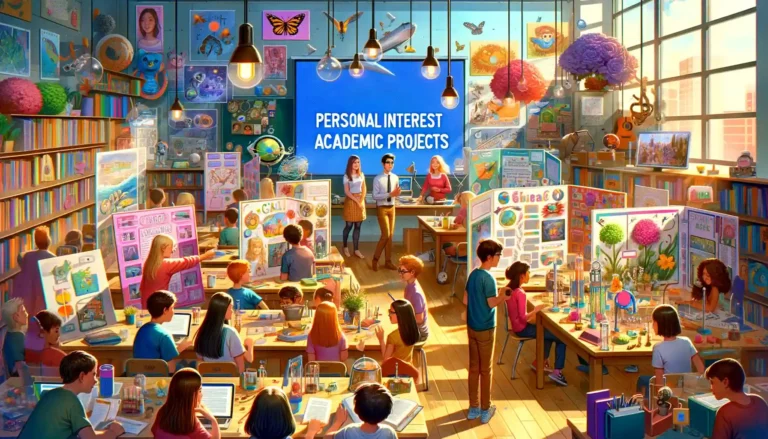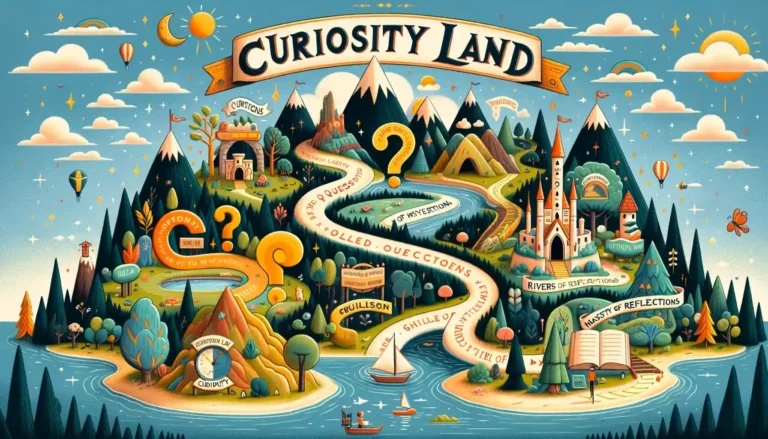The Secrets of Learning: Explore the Psychology of Interest
Have you ever been so engrossed in a topic that time seemed to fly by? Whether it’s dinosaurs, outer space, or the latest video game, certain subjects have the power to captivate our attention and ignite our imagination. This lesson will explore the psychological underpinnings of our interests, uncovering the forces that draw us towards certain activities and ideas. We’ll delve into how interests shape our identities, influence our future paths, and enhance our learning experiences. By understanding the roots of our fascinations, we can harness the power of interest to enrich our lives and learning journeys.
Learning Goals
- I will be able to explain the psychological factors that contribute to developing interests, including curiosity, novelty, emotion, and connection.
- I will understand how interests can shape personal identities and future dreams, influencing choices in education and career paths.
- I will learn strategies for nurturing and sustaining interest in various subjects to foster a lifelong love for learning.
- I will explore how the psychology of interest can be applied to educational strategies, such as the Super Mario Effect, to enhance motivation and learning outcomes.
Materials
The Puzzle of Interest Handout
How I Tricked My Brain Video
How I Tricked My Brain Worksheet
Process
- Begin with a discussion on why some topics instantly grab our attention while others do not.
- Read the handout, “The Puzzle of Interest” together. Afterward, have the class brainstorm instances when something new or unusual sparked curiosity. Discuss how our brain’s desire for novelty stems from ancestral survival instincts.
- Watch the video “How I tricked my brain to be addicted to studying.” The link is shown above.
- Complete the worksheet for the video.
The Puzzle of Interest: Exploring the Psychology Behind What Captivates Us
Have you ever wondered why some topics like dinosaurs, outer space, or even the latest video game can grab your attention so quickly and keep you hooked for hours, while other subjects might make your mind wander in just a few minutes? This mysterious force that draws our minds like magnets to certain ideas, hobbies, or activities is called interest. Let’s dive into the fascinating world of psychology to uncover why we find some things interesting and how this shapes our learning, hobbies, and even our future dreams!
The Seeds of Interest: Curiosity and Novelty
Imagine walking into a room and spotting something you’ve never seen before. It could be a gadget, a strange-looking plant, or a book with an intriguing cover. This initial spark of curiosity is often the first step in developing an interest. Our brains are wired to notice things that stand out from the ordinary because, thousands of years ago, noticing new things could help our ancestors survive. Today, this trait helps us learn and grow by exploring new subjects and ideas.
The Fuel of Interest: Emotion and Connection
Have you ever felt a rush of excitement when learning about a topic you love? That’s because interest isn’t just about curiosity; it’s also deeply tied to our emotions. When we find something that resonates with us, whether it’s because it’s related to our hobbies, dreams, or even challenges we’ve overcome, it creates a strong emotional connection. This connection acts like fuel, keeping our interest burning and encouraging us to dive deeper.
The Path of Interest: Knowledge and Mastery
As our interest grows, so does our desire to learn more and get better at whatever has captured our attention. This is where interest starts to play a huge role in our education and personal development. For example, a student who loves music might start learning an instrument, practicing day after day to master it. This journey from beginner to expert is powered by a genuine interest in the subject, making the challenges and setbacks along the way feel like part of an exciting adventure rather than just obstacles.
The Power of Interest: Shaping Our Identities and Futures
The things we find interesting don’t just fill our free time; they can also shape who we are and who we become. Imagine a young student fascinated by the stars, spending nights reading about galaxies and constellations. This interest might lead them to pursue a career in astronomy or space science. Our interests can guide our choices in education, careers, and even the people we connect with, shaping our paths in life in significant ways.
The Mystery of Interest: Why Do We Like Different Things?
But why do different people find different things interesting? Part of the reason lies in our unique personalities and life experiences. The hobbies we’re exposed to as children, the challenges we face, and even the books and movies we enjoy can influence our interests. Plus, our brains are all a bit different from each other, which means what excites one person might not excite someone else in the same way.
Nurturing Interest: How Can We Keep It Growing?
Now that we know how important interest is, how can we keep it alive and well? Here are a few tips:
- Explore Widely: The more you explore, the more likely you are to stumble upon something that truly captivates you. Try new activities, read different kinds of books, and don’t be afraid to step out of your comfort zone.
- Connect With Others: Sharing your interests with friends or joining clubs can make your hobbies even more enjoyable and introduce you to new ideas and perspectives.
- Set Challenges: Keep your interest alive by setting small, achievable goals for yourself. This could be finishing a project, learning a new song on an instrument, or reading a certain number of books.
Reflecting on Interest
Understanding the psychology behind interest isn’t just an academic exercise; it’s a journey into understanding ourselves better. By recognizing what captivates us and why we can make more informed choices about how we spend our time and what we devote our energy to. Plus, nurturing our interests can lead to a more fulfilling and passionate life.
So, take a moment to think: What are you interested in? How did this interest start, and how has it grown over time? Reflecting on these questions can help you understand your own path of interest and where it might lead you next. Remember, the world is full of fascinating things waiting to be discovered. Who knows what new interest might be just around the corner, ready to inspire your next great adventure?
After Watching “How I tricked my brain…”
After watching the video, answer the following questions:
- Why is it important to track your progress as you learn something new?
- Especially if you are uncertain about something, why should you get feedback from others?
- What is the Super Mario Effect?
- Why should we break down high-risk goals into low-risk, high-reward goals?
- What did you find most important about the video?





